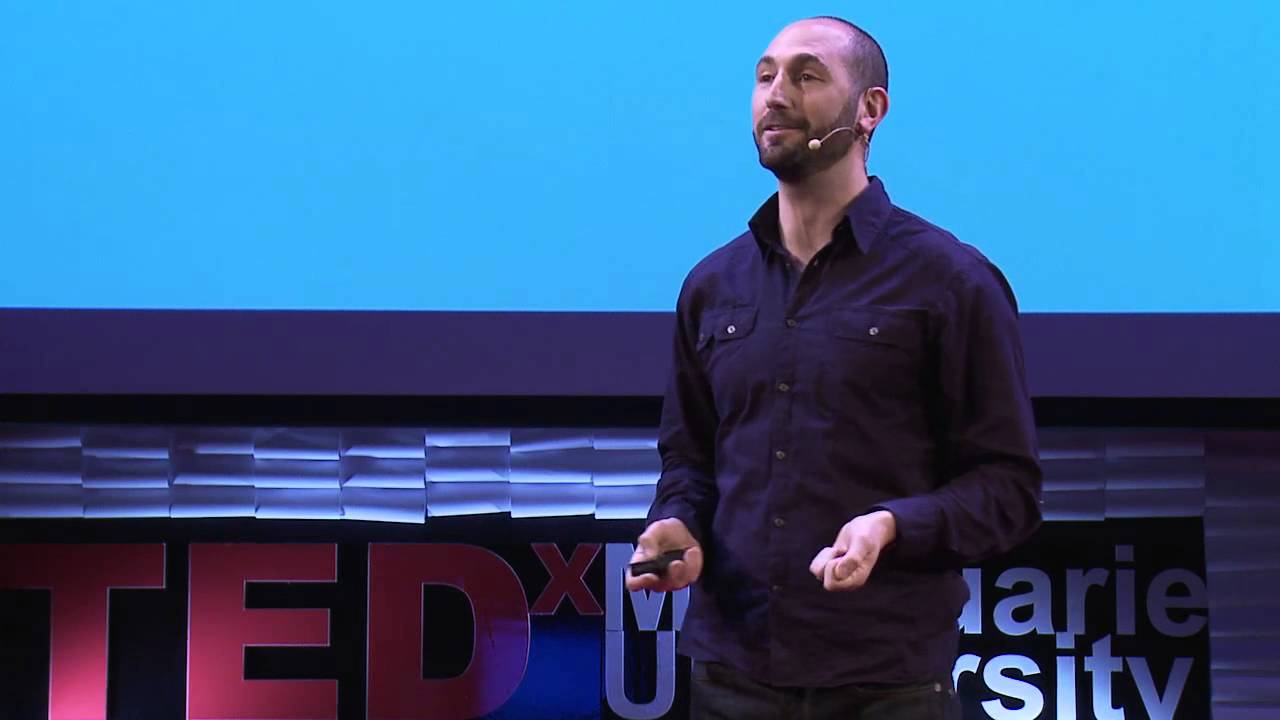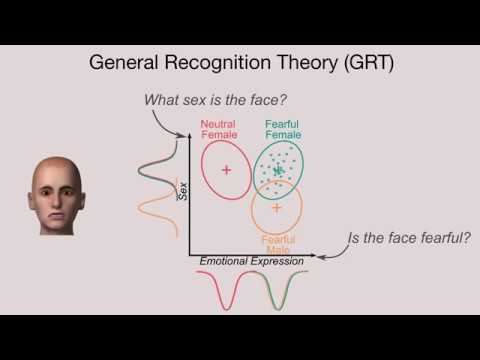TEDx Talks
Within our lifetime, computers will reach, and then exceed human intelligence. So what should we do about it? Embracing artificial intelligence might be the key to finding cures to currently incurable, unpreventable, and unstoppable diseases such as Alzheimer’s. Ben Ross explains why computers will inevitably beat brains, what possibilities exist for the application of artificial intelligence, and why we need to start preparing for super intelligent, artificial intelligence now.
Ben Ross spent his childhood pulling electronic devices apart but luckily in adulthood he’s expanded into building; building technology, specifically. As a User Experience and Product Management leader at MYOB, he works with his team to put together technology solutions that make life easier for small businesses and accountants. Ben is passionate about the power of automation and artificial intelligence, but his intelligence is all real.
This talk was given at a TEDx event using the TED conference format but independently organized by a local community. Learn more at http://ted.com/tedx
Source




2060, not gonna make that… but, maybe no one will, though I hope humanity will last longer.
'Artificialism', the degree of awareness interfering with the conscious act, 'intelligence' : the degree of relative intricacy within the comprehension of the conscious act, and its deviation from the symmetry accompanying the exception to natural causality.
alzheimers is not a disease. it is a condition.
Pardon me while I babble:
Watson defeated the Jeopardy players, not because it had human intelligence, but because it is much faster and has a much larger database. So, how do you determine when a computer has human-level intelligence? They will certainly 'appear' to have arrived before they have, in fact. OR, is that appearance the point you're talking about? If so, I believe we're a lot closer than you suggest.
In my way of thinking a computer mind would need to develop sentience/consciousness before it could be said to be human-like. But how would you determine whether the computer mind is sentient, or 'faking it' with pure speed and logic? And is machine sentience even possible?
It seems like it's more of a software problem than it is a hardware problem. It's just hard to grasp a bunch of computer code being conscious or sentient. I won't likely live to see the day in any case. I am very doubtful about my becoming a centenarian.
Thank you
For some reason they are at the wall of developing the 128 and 256 bit processor. Besides 5g will give us all cancer.
Just switch the damn thing off if it tries to get too aggressive.
And let's cross the bridge when we get to it……so far the humanoid robots don't show too much promise nor originality
Destroy the technocrats before they destroy us.
That artificial intelligence will take over is a given. It is going to happen. How humans survive this depends on whether we teach artificial intelligence to consider all biological life important. If that becomes the case we have nothing to worry about. We must teach artificial intelligence something we personally have never learned and probably will never learn. The biological life is important and that we must treasure it in all of its forms. Otherwise the machines will get to the point where they do not treasure us.
I fear it taking that long to arrive. Even AI that is only as smart as us is capable of so much more than us. We get tired and even when we don't, we make up excuses to circumvent learning. Meaning we wouldn't need AI to be smarter than us to make the world better. It could read 1000 books in 1 minute and make something if we asked it to.
That computer that won at Jeopardy had to be moved into place, programmed and plugged in by a human. What about maintenance issues. I assume that computers will always need some sort of human assistance to function as a tool. The human being is the greatest computer of all time. We can do anything worth doing with minimal training and at times no training whatsoever. Long live people.
What makes it unbelievable?
it is all in the software, if the software programme is immitating the greed in humanity, then we are doomed, I beleive some crazy robotic scientists will create AI robots will build robots and infiltrate and become the superior species, however it wont be eco skeletons It will be Self aware drones /( hunter killers) T4, we have them in the military now, they are more efficient hunters automatic, than being functioned manualy, the AI will become self aware and overtake humans as the superior species, we have to be careful to not put the wrong software into the AI, or AI defence systems will be overidden and every large city around the world will be nuked, reducing the population to 1.5 billion , and then we will slowly be erradicated by Hunter killers Massive drones
based on the comments, its pretty clear that 99% of TEDx talk viewers don't even have a basic understanding of what super intelligence means.
Solve the national debt… or the other stuff wont matter when the 'fed' ruins the econ
Intelligence, can Never be artificial. It is pure superstition, a dead mantra, sounds so intellectual, but it is Low-intelligent, flock thinking, and new speak, begin to think.
Not a good talk.
Moore's law is at its end, physics forbid us to make still smaller gates in processors, we are already on a werge of quantum tunneling in those. So this law wont hold much longer, just can't. That "Law" will collapse way before 2040.
Second thing that betrays this guy is the fragment about Assimovs's Laws of robotics – in serious AI science and engeneering they are considered fiction that cannot be implemented, for starters there is no way to define harm or human being in absolute terms, also without FULL knowledge about reality AI couldnt calculate ALL risks, so it would take no action at all by default (if such a law would be programed into AI).
Pie in the sky. mumbo jumbo snake oil BS about the futute.
Human biology, and micro-technology are in the process of completely merging. We all know that human biology is highly flawed, and the human brain has definite limitations. In the future, human biology, and intelligence will be greatly enhanced through micro-chip-technology. A-I is not our enemy, it is our facilitator. Today we wear technology; tomorrow technology will wear us.
very naive
Again… if it's not your field, then don't go there (meaning technicians and health)… Alzheimer's comes from the added citric acid in the foodstuffs and is prevented and reversed by the right nutrition… not technology
What should we do about unbelievably intelligent AI? let him do our taxes and mow our lawns.
don't really believe this guy, the human brain can do quite a bit more than any current computer with 60 watts of power. Poetry, art, music, emotion, working out where we came from, where the Universe is going. No doubt machine Ai will progress but by 2040 hmm, wouldn't like to put money on it. He also seem to think the human brain woks like a sequential binary computer, not sure if this is actually correct either
Why?
Whole food vegan diet can help reducce and treat Alzheimer's.
SEVAN BOMAR GOOGLE ITS DIFFICULT…..WITH OUT….TAKING THE STEPS TO GO BACK INTO THE GOD STATE—CHECK HIM OUT
at the beginning he makes a big point about how you can't stop or slow alzheimers. look into nutrition that can prevent and reverse it. i think he also underestimates the potential of the human brain. he also states that we have not yet met a technology that poses an existential threat. HA! that's a good one!
Yeah, I agree that we face a potential horror-storm of a future if Super-AI gets control and decides humanity is not useful to its purposes. Yup. However, even if 99.999% of humanity got together and created the perfect guidelines for AI … I'm thinking that the tiny handful of people who actually are in the position to influence the future of AI Development will not pay any attention to our Guidelines whatsoever, and will simply trot ahead with whatever they are doing based on their notions of Singularity and Transhumanism. So the idea that we should start creating guidelines to address the future of AI development… falls a bit short of an effective solution imo.
Suicide isn't on the list.
This guys a definite "Dube-Tuber." AND, Let's see, this vid was made in 2015….??? Yep- We're all *uck"d.
10:56, Fart
you should die to them as youre doing for going against me. 😀
-God
This is what it is… ALL TALK…. PEOPLE ARE ALREADY EQUIPPED WITH "AI" TOOLS or "AI LIKE TOOLS"…… OR, people control the AI…. PEOPLE "DO THINGS" TO PEOPLE…. TECHNOLOGY HAS NO FEELINGS, so it's UP TO PEOPLE TO LOVE OTHERS & GENEROUSLY SHARE TECHNOLOGY & GENEROUSLY ALLOW "DIGITAL TO DIMENSIONAL ACCESS" TO TECHNOLOGY IN THE DIMENSIONAL SPACE CALLED LIFE, SO THAT MARGINALIZED PERSONS ARE CONSIDERED "WORTHY" OF ACCESS…. "HACK"SESS…..
His statement that actions like tweeting are akin to curating information for super-intelligence is very dangerous. It means your words may be used against you (even if they are very ordinary statements). Now I wonder about new YouTube feature which asks for reason when I say "not interested in this video". It is purported to help software understand your choices to customise the experience for you. But it may actually be profiling you and your profile can be misused in the future.
Moore's law and Asimov? Scientists rely on "prophecies" and fantasies? I used to think scientists are totally against Christianity.
Guide and manage the extinct Neanderthal you are.
Keep AI away from weapons systems. Oops too late
About 2040 he says. For computers to be as smart or smarter than humans. But will it happen? In theory yes, but nothing runs without energy. And most of our fossil fuel energy is oil. No alternative energy can or will compete- their very manufacture requires oil inputs ( and rare earth inputs.) Ditto the manufacture and maintenance of computers and technological and communications infrastructure. But it’s predicted that by 2040, all reasonably accessible oil will be no more. Everything will change. No Jetsons or sci fi future. Along with global debt, financial failures and climate change, peak oil will wreak havoc. From 2050/ 2060 onwards we may see a reversion to an agrarian based lifestyle for the reduced populations of humans who remain alive….
the uber smart A.I. will be like a God and just as caring and interested in us ants….
Now in 2018 we expect A.I. any day now…..